Search Images
Browse Content (p. 1622)
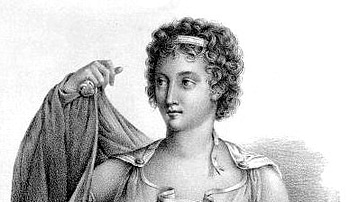
Image
Agnodice
Engraving of Agnodice, ancient Greek practitioner of medicine.

Image
Aspasia Surrounded by Greek Philosophers
Aspasia Surrounded by Greek Philosophers, oil on canvas painting by Michel Corneille the Younger, 1670, Palace of Versailles.
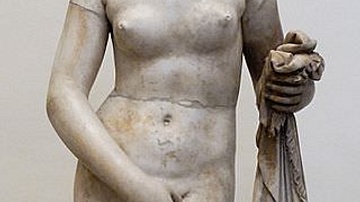
Image
Aphrodite of Knidos
Roman copy of Aphrodite of Knidos by Praxiteles (4th cent BCE); restored by Ippolito Buzzi (Italian, 1562–1634 CE)
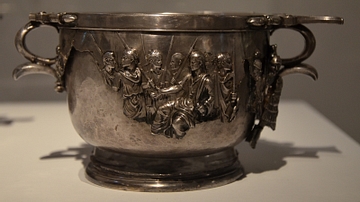
Image
Skyphos Boscoreale with Augustus
Skyphos (two-handled wine cup) from the Boscoreale Treasure depicting Augustus receiving the obeisance of vanquished Barbarians and personifications of subdued provinces. Late 1st century BCE - early 1st century CE. (Louvre Museum, Paris)
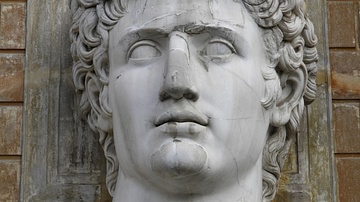
Image
Colossal portrait of Augustus
Colossal portrait of Augustus, 1st century CE. (Vatican Museums, Rome)
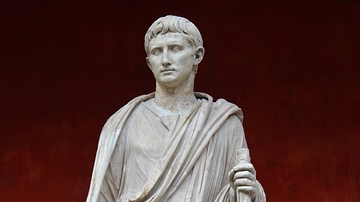
Image
Statue of Augustus
A statue of Augustus depicted as magistrate. (Ny Carlsberg Glyptotek, Copenhagen)

Image
Spartacus
Spartacus, marble sculpture of Denis Foyatier, 1830 CE. (Louvre Museum, Paris)
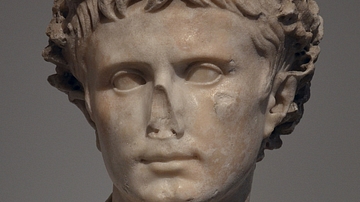
Image
Bust of Augustus
Bust of Augustus wearing the oak crown (corona civica) discovered on the site of the Roman villa of Chiragan (France), 19-18 BCE. (Toulouse, Musée Saint-Raymond)

Image
Marcus Licinius Crassus, Louvre
A marble head of Roman statesman and general Marcus Licinius Crassus, middle of 1st century BCE. (Louvre Museum)
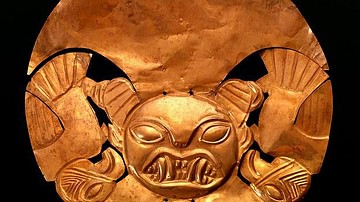
Image
Moche Gold Headdress
A Moche gold headdress (1-700 CE). The figure represents a fanged deity, a common subject in Moche art. (Larco Museum, Lima)